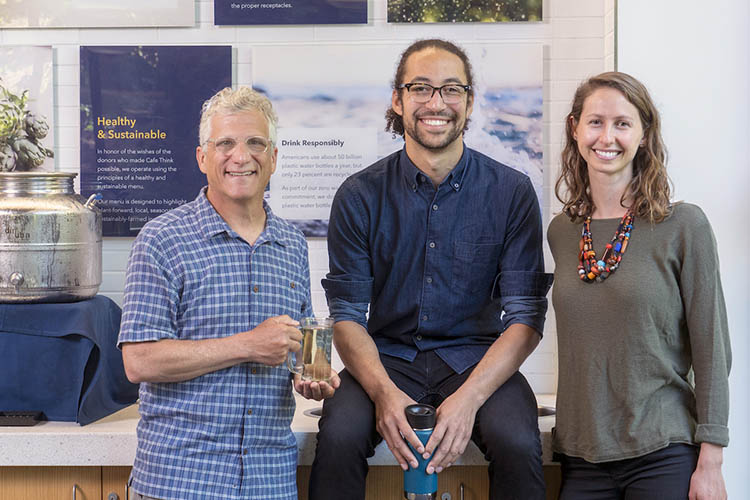Food’s the focus for passionate crop of MBA students
More food-related courses, events, student internships, startups

June 17, 2019
The UC Berkeley Haas School of Business’ Sustainable Food Initiative — a hub that’s preparing a growing number of students to tackle global food challenges — is reaping results just one year after it was launched.
Today, the number of Berkeley MBA students landing internships and full-time jobs in the food and beverage industry is double what it was three years ago, and the number of food startups is increasing annually. Since it was launched at Berkeley Haas in April 2018 by the Center for Responsible Business, the initiative has led to more food courses, an expanded library of sustainability case studies, events with food industry luminaries, such as Dan Barber, Alice Waters and Claus Meyer, and an uptick in students with internships and jobs in the food industry.
“We’ve attracted a tribe of people who are food-focused,” says Doug Massa, a corporate relationships manager with the Berkeley Haas Career Management Group, in a recent Haas Newsroom article by Kim Girard.
Berkeley Haas students who have launched food startups include Somiran Gupta, who created nearfarms, an online marketplace based in Berkeley that connects consumers with vegetables, fruits, eggs, bread and dry goods, such as granola and almond butter, from small, local farms, and Samantha Tannor, creator of Tannor’s Tea, a plant-based and wellness-focused company in Berkeley that sells an organic matcha concentrate.
The initiative’s leader is Will Rosenzweig, who founded the Republic of Tea, headquartered in Novato. In the past 20 years, he has mentored and invested in Berkeley Haas startups that include Oakland-based Revolution Foods, which makes healthier cafeteria food for children.
The core of the initiative is Edible Education 101, an undergraduate course launched in 2011 that Rosenzweig teaches with Waters. It brings scientists, CEOs, community activists and chefs to Berkeley Haas to talk about the future of food. The caliber of the guest speakers — who have included Samin Nosrat, who wrote Salt, Fat, Acid, Heat, an award-winning book that spun into a Netflix series — is “a hidden gem of this entire university,” says John Monaghan, a current MBA student who left the dairy industry in Illinois to study the business of food at Berkeley Haas.
Rosenzweig says he’s also partnering across disciplines at Berkeley to launch new food-related courses that tap “other really smart people involved in solving these sustainability problems.” And students signing up for his Food Innovation Studio course are from other colleges and departments on campus, including the College of Engineering and the Department of Environmental Science, Policy and Management.
“The sky’s the limit with this initiative,” says Robert Strand, executive director of the Center for Responsible Business. “We want to be a strong partner in the global conversation on food and bring the world to California and our ideas to the world.”